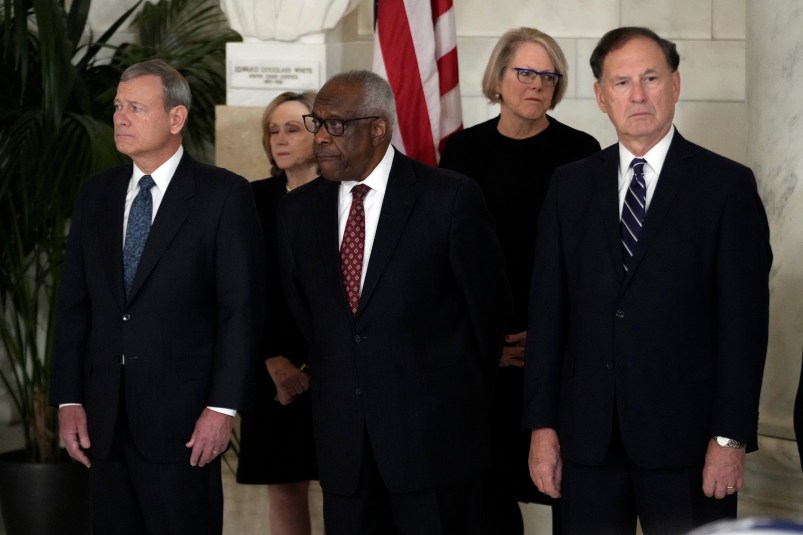We learn more of the sordid details of the plea agreement of Australian David Hicks, whose five-year detention by the U.S., mostly at Guantanamo Bay among the purportedly most dangerous of the dangerous, ended in a nine-month prison sentence.
The plea agreement, which includes a one-year gag order on Hicks, was not negotiated by the military tribunal’s prosecutors but by the official overseeing the tribunals, reports the Post this morning. In fact, the agreement was reached without the knowledge of the prosecutors, who favored a much stiffer penalty.
Australians have long suspected that the political fortunes of Prime Minister John Howard, who is up for re-election this year, would have some bearing on Hicks’ fate. The circumstances of the plea agreement further cement that notion:
Marine Maj. Michael “Dan” Mori, representing Hicks, took his plea negotiations to Susan J. Crawford, the top military commission official, rather than dealing with prosecutors who were seeking a lengthy penalty, according to both sides in the case. In what became a highly politicized situation involving the Australian government, Crawford allowed Hicks a short sentence in exchange for a year-long gag order, a guarantee that he will not allege illegal treatment at the hands of his U.S. captors, and a waiver of any right to appeal or sue.
Though Australian officials have said they were not directly involved in plea negotiations, Mori declined to answer questions about what, if any, influence they had. Australian Prime Minister John Howard, up for reelection this year, has been under public pressure to bring Hicks home. He turned to Vice President Cheney to implore that the case be resolved. Crawford was the Defense Department’s inspector general from 1989 to 1991, when Cheney was defense secretary.
“What an amazing coincidence that, with an election in Australia by the end of the year, he gets nine months and he is gagged for 12 months from talking about it,” said Australian lawyer Lex Lasry, who was in Cuba to monitor the case over the past week.
Could the outcome of the Hicks case be any less legitimate?
On the one hand, you have Hicks being held for five years without trial amidst allegations of torture and other mistreatment, fighting simply to get a fair hearing. His case has become an internationally known example of the Bush Administration’s blatant disregard for basic human rights.
On the other hand, you have the outcome of the case determined not by conventional Anglo-American standards of due process, including evidence presented to an impartial fact-finder, but by the political considerations of the Bush Administration and its ally Howard. Or as a spokesperson for the military commissions candidly told the Post, “Like it or not, the detainees at Guantanamo are from different countries, and that sometimes is a factor.”
It’s another example of politics trumping the War on Terror when it suits the Bush Administration. While you might feel some relief that there is an end in sight to Hicks’ Kafkaesque detention, you can’t help but be left with niggling doubts. Was Hicks a true danger? Perhaps not. But prosecutors thought Hicks would have received a decades-long sentence if the case went to trial. Has Hicks been vindicated? Not at all. The able representation of Hicks by Maj. Dan Mori took advantage of the political situation in Australia to win his client’s eventual release. Mori knew the game that was being played, and played it.
It is a deeply unsatisfying outcome.
Late update: Here’s the Hicks plea agreement. [Thanks to TPM Reader JG for the link.]






